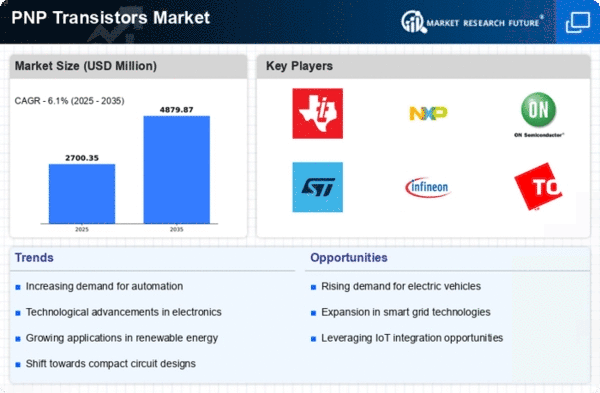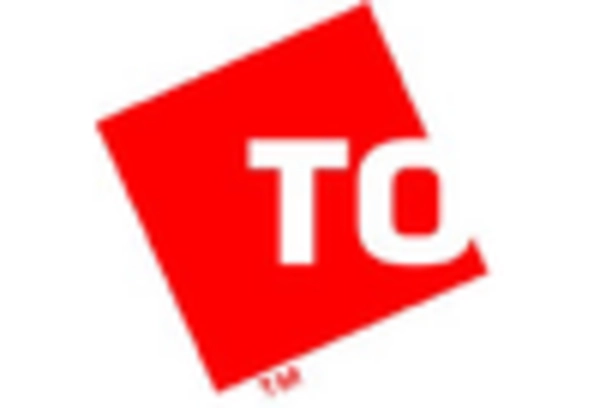Market Trends
Key Emerging Trends in the PNP Transistors Market
The PNP (Positive-Negative-Positive) transistors market is characterized by several noteworthy trends that shape its current landscape. One prominent trend is the relentless pursuit of miniaturization and efficiency in electronic devices. As consumer electronics continue to evolve, there is a growing demand for smaller, lighter, and more energy-efficient PNP transistors. Manufacturers are responding to this trend by developing compact transistors that deliver high performance while consuming minimal power, catering to the needs of smartphones, wearables, and other portable devices.
Another significant trend is the increasing emphasis on energy efficiency and sustainability. With a heightened awareness of environmental concerns, there is a growing demand for PNP transistors that contribute to energy savings and reduced carbon footprints. Manufacturers are focusing on developing transistors with low power consumption and improved efficiency to align with the global push towards sustainable technologies. This trend is particularly pronounced in industries such as automotive and smart building solutions.
The rise of the Internet of Things (IoT) is also influencing market trends in PNP transistors. As IoT applications become more prevalent, there is an increased demand for transistors that can handle the communication and data processing requirements of connected devices. PNP transistors with enhanced connectivity, low power consumption, and the ability to operate in diverse environments are gaining traction in the market to support the expanding IoT ecosystem.
In the automotive sector, the growing adoption of electric vehicles (EVs) is driving specific trends in the PNP transistors market. The shift towards electric mobility necessitates transistors with high power efficiency and reliability for applications in electric drivetrains, battery management systems, and charging infrastructure. Manufacturers are innovating to meet these demands, contributing to the evolving landscape of PNP transistors in the automotive industry.
5G technology deployment is another influential trend impacting the PNP transistors market. The rollout of 5G networks requires advanced transistors to support the increased data speeds and connectivity demands. PNP transistors with higher frequency capabilities and improved signal processing capabilities are in demand to enable the seamless functioning of 5G-enabled devices and infrastructure.
Additionally, there is a growing trend towards the integration of PNP transistors in emerging technologies such as artificial intelligence (AI) and machine learning. As these technologies continue to advance, there is an increasing need for transistors that can handle the computational requirements of AI applications. PNP transistors with enhanced processing capabilities and optimized architectures are becoming essential components in AI-driven devices and systems.
Market trends also reflect the importance of reliability and robustness in PNP transistors. Industries such as aerospace, defense, and industrial automation demand transistors that can operate in harsh environmental conditions and withstand extreme temperatures. Manufacturers are responding by developing ruggedized PNP transistors that meet stringent reliability standards for critical applications.
















Leave a Comment